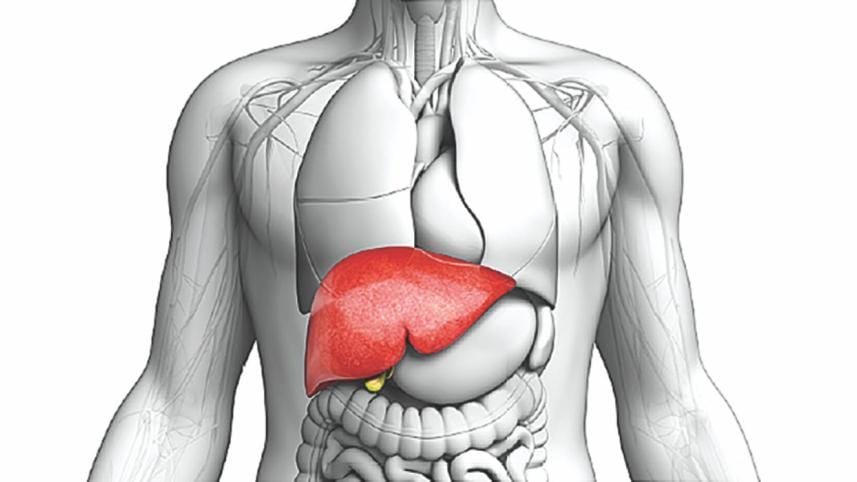Diet and nutrition for Hepatitis: Foods to eat and avoid when you have a liver problem

There are many confusions and misconceptions surrounding the ideal diet of a person suffering from liver diseases. The diet of a person effected by liver disease like hepatitis and liver cirrhosis must be balanced yet nutritious as it is a part of treatment therapy.
Importance of the liver
Liver is the seat of metabolism in the body. The large size of the liver is matched by its functional complexity and diversified involvement of regulatory mechanism. Whatever food we eat, after digestion passes through liver and it processes the food into various components.
A healthy liver makes glycogen from carbohydrate. The glycogen is then broken down when the body needs energy. A damaged liver cannot do this. Without glycogen, more carbohydrate is needed from the diet to make sure the body has enough energy.
About 85-90 percent of the blood that leaves the stomach and intestines carries important nutrients to the liver where the proteins are processed and broken down into amino acids, the carbohydrates into glucose molecules and the fats into fatty acids.
The vitamins and minerals are utilised in various enzymatic chemical reactions to break down and convert the food into utilisable form. The hepatocytes (liver cells) use various enzymes to perform these functions. Also, they prevent the entry of bacteria and viruses into our body.
Dietary need of a diseased liver
According to the National Health Service, UK (NHS) hepatitis is the term referring to inflammation of the liver. It is usually the result of a viral infection or liver damage caused by drinking alcohol. There are several different types of hepatitis — some types will pass without any serious problems, while others can be long-lasting (chronic) and cause scarring of the liver (cirrhosis), loss of liver function and, in some cases, even liver cancer.
Liver diseases such as hepatitis and cirrhosis may change the way our body uses nutrients from food. A high protein, high carbohydrate, moderate fat diet divided in to six to eight meals is advised for quick recovery.
A high protein diet is essential for the tissue repair. Intake of fat should be restricted as its mobilisation in liver is affected. MCT (medium-chain triglycerides) oil therapy is advised in such cases (edible coconut oil is considered a good source).
Most of the patients of cirrhosis of liver (replacement of damaged liver cells by fibrous scar tissue) are severely malnourished and require a high calorie and high protein diet. Too much protein will result in an increased amount of ammonia in the blood; too little protein can reduce healing of the liver. Amount of protein to be given to the patient depends on the liver's ability to metabolise.
A diet containing approximately 2000 kcal, which can be provided by 20-25g of healthy fat, 80-90g proteins and 400g carbohydrate is suitable.
Ascites is the terminal stages of cirrhosis where fluid accumulates in the abdominal cavity due to failure of the liver to synthetise plasma albumin, a protein in the blood. For such patients, a high protein diet, which is low in sodium would be most suitable.
When the liver fails the condition is known as hepatic encephalopathy. They should be given 20g of protein in the diet. This should mainly be derived from skimmed milk.
Coconut water is excellent for patients with liver cirrhosis. Bitter tasting vegetables are - all gourds, long gourd, bottle gourd, round gourds, bitter gourds and turnips, radish, carrots, and potatoes are good in liver failure.
Foods that strengthen the liver
Methionine and cysteine (egg yolks, red peppers, garlic, onions, broccoli, Brussels sprouts, sesame seeds, whole grains and beans) are sulfur-containing proteins that are known to protect the liver and aid in converting fat-soluble toxins to water-soluble substances that can be eliminated through the urine.
Choline (soybeans, egg yolks, nutritional yeast, fish, peanuts, cauliflower, lettuce, cabbage, lentils, chick peas and brown rice) is required to metabolise fats in the body. B-complex (nutritional yeast, sunflower seeds, almonds, peanuts, sesame seeds, and brown rice) is very important for liver as well.
Foods that contain vitamin C (mustard greens, cauliflower, red cabbage, strawberries, papaya, spinach, mangos, peppers, broccoli, and Brussels sprouts, kale) and vitamin E (almonds, sunflower seeds, walnuts, tomatoes, whole grains, and green leafy vegetables) are important as antioxidants to protect and treat a damaged liver.
Simple tips for maintaining a healthy liver —
- Small meals served separately are better than three large meals.
- Junk food, preservatives, alcohol, and carbonated drinks should be avoided.
- Drinking a lot of water helps the liver to clean the toxins more effectively (drinking water is very important if there is no water retention or ascites).
- Avoid sour fruits at all cost. Lemons, oranges are not recommended if you have a liver condition.



 For all latest news, follow The Daily Star's Google News channel.
For all latest news, follow The Daily Star's Google News channel.
Comments